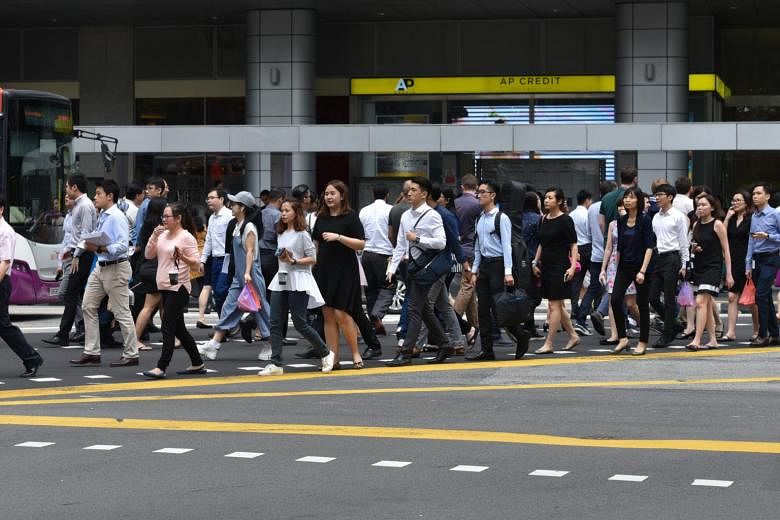The first industrial revolution introduced mechanisation powered by water and steam. The second one saw the start of mass production and assembly lines using electricity. And the third, computers and automation.
We are now in the fourth industrial revolution, Industry 4.0, which focuses on smart and autonomous systems using data and machine learning.
Connected and smart computers are making decisions without human involvement. Cyber-physical systems, Internet of Things, robotics and artificial intelligence are making factories and offices smarter, more efficient and productive, ultimately replacing humans.
The previous revolutions displaced mainly blue-collar workers, but new jobs and professions were created apace to employ them.
With Industry 4.0, white-collar workers - professionals, managers, executives and technicians (PMETs) - are increasingly being displaced by smart systems.
Are new jobs and professions being created fast enough to keep pace with such displacement?
Lifelong learning, upskilling and reskilling are the new mantras of organisations and governments as they grapple with this new reality. Yet, to what extent can they provide employment quickly enough for the displaced PMETs and fresh graduates entering the workforce?
While it took decades for previous industrial revolutions to disrupt the workplace and workforce, Industry 4.0 is doing it in a few years.
Can a middle-aged PMET be reskilled or upskilled sufficiently for a position which pays as well as his previous job? Can his new salary cover the debts and provide for his family and the lifestyle they have enjoyed? And when he competes with a fresh graduate for a job, who would the company choose?
The raison d'etre for any business or company is to make money for its owner or shareholders. Which business or company would not want Industry 4.0 to replace the cost and expense of employing a human with a smart system which works better and is cheaper overall?
Like any revolution, Industry 4.0 has brought with it a social cost.
Perhaps it is time to look at increasing and widening the social welfare net as more people become unemployed or unemployable for longer periods.
Chew Kok Liang

